Sure, we all like to treat our furry friends at Christmas but it’s also important to keep pets safe during the festive season.
In fact, 60% of Aussie pet parents buy Christmas gifts for their pets (and that’s only the ones that admit it!). Yet, while gifting your gorgeous fur pal is a lovely thing to do; keeping them safe from festive dangers is also super important.
We, humans, look forward to a ‘jolly old time’ during the Christmas period. However many of the foods we consume and activities we engage in can be harmful or frightening for our pets. So, here are some helpful hints on how to keep pets safe during the silly season.
Choose treats wisely
As we look forward to an array of festive foods, you’ll no doubt want to spoil your four-pawed pals. Just be careful and make sure you select pet-friendly festive treats.
To help you do just that, PETstock vet Dr Sash Nefedova advises which foods to avoid feeding your dog or cat.
Raisins and grapes
Raisins and grapes are some of the most toxic foods to dogs, even in small quantities.
Pork, bacon and ham
Most pork products contain a high amount of fat, causing illness such as pancreatitis.
Chocolate and lollies
Chocolate is a big no, no. If ingested, chocolate and lollies can make a pet very ill, as they cannot metabolise the food as well as humans can. Plus, the darker the chocolate, the more toxic it is for pets. Fact!
Dairy products
Dairy products such as ice cream, milk or cheese can upset your pet’s digestive system, as their bodies were not designed to process dairy.
Alcohol
Unsurprisingly, the consumption of alcohol is extremely dangerous for pets, so store it in a high cupboard and wipe up any spills as soon as they occur.
Summer fruits
Believe it or not, many fruits including oranges, grapefruit, lemons, and limes can be toxic to pets if ingested. This is particularly so for the peel, seeds, or stems, so ensure all fruit platters are kept out of reach.
“If you suspect that your pet has eaten something dangerous, monitor for any changes in their appearance or behaviour. Common reactions may include bad breath, excessive panting, poor breathing, muscle twitching, vomiting and diarrhoea. If your pet demonstrates any of these symptoms, contact your local vet immediately,” advises Dr Nefedova.
Pet-proof festive decorations and lighting
“To a pet, a Christmas tree is a life-sized toy with attractive tinsel and lights, baubles the size of tennis balls, and delicious-looking candy canes. When decorating the tree, place your pet in another room to dissuade them from interpreting the excitement as an invitation to play,” says Dr Nefedova.
“If your pet is fascinated by the ornaments, ensure anything risky like glass baubles or candy canes are hung out of reach and the tree is safely secured. Pets should always be supervised around the tree, so consider restricting access by setting up your decorations in a room where the door can be closed, or a barrier can be created by using a pen.”
She adds, “Cords for lighting should be kept neat, tidy, and out of sight from pets. If your puppy or kitten is teething and chewing, be extra cautious with extension leads, as they are soft and highly desirable chew objects. If your pet does cause destruction with your Christmas decorations and ingest plastic, glass or tinsel, see your local vet immediately.”
Practice summer safety
When you’re catching up with friends at the beach it can be all too easy to forget about the safety of your pet. Don’t. Make sure you keep your furry friends’ health and best interests top of mind.
Dr Nefedova says, “If you are heading to the beach with your dog in toe, avoid walking them on hot sand to protect their paws and ensure they have plenty of fresh water available.
“Remember, salt water can be irritating for your pet’s skin, so give your four-legged adventurer a rinse or bath once you get home. Just like humans, pets too can get sunburnt so it’s important that owners take pet-friendly sunscreen on any outdoor excursions.
“When you’re at the beach with your pet, take some bright and waterproof toys to keep them entertained and active. Involving them in a game of cricket is also a great way to keep them mentally and physically active.
“However, don’t forget that pets are extremely susceptible to heat stress. Pets should be kept indoors during extreme heat waves with a fan or air-conditioning. Ensure pets are never left in cars unattended or tied up outdoors as consequences can be fatal. Signs of heat stress can include uncontrolled panting, bright red gums and tongue, and in serious cases your pet can collapse. If you notice any of these symptoms, please contact your local vet.
“To avoid heatstroke and keep pets safe, ensure they have access to plenty of water and shade. Ice cubes can be added to their water throughout the day or given to them as a makeshift enrichment toy. Frozen treats will also help to cool them down while mentally stimulating them at the same time.”
New Year’s Eve and pet safety
You might love having a houseful of guests but your pet might not be so thrilled. As such, it’s important to be mindful and do whatever you can to keep your pet feeling calm and stress free.
“Try to keep things as normal as possible by sticking to their feeding and exercise schedule as best you can. Allocate a quiet room around the house that they’re used to where your pet can relax and be comforted by enriching treats or toys. For highly active pets, playing with and exercising them before guests arrive will keep them calm and less energetic around your visitors,” advises Dr Nefedova.
As responsible pet owners, it’s important to make sure the festive season is enjoyable for both you and your pets. With a little forethought and careful planning, you can keep pets safe while also having a jolly old time yourself!
Happy festive season x
Main image by Jakob Owens on Unsplash, Internal image by Jasmin Schuler on Unsplash

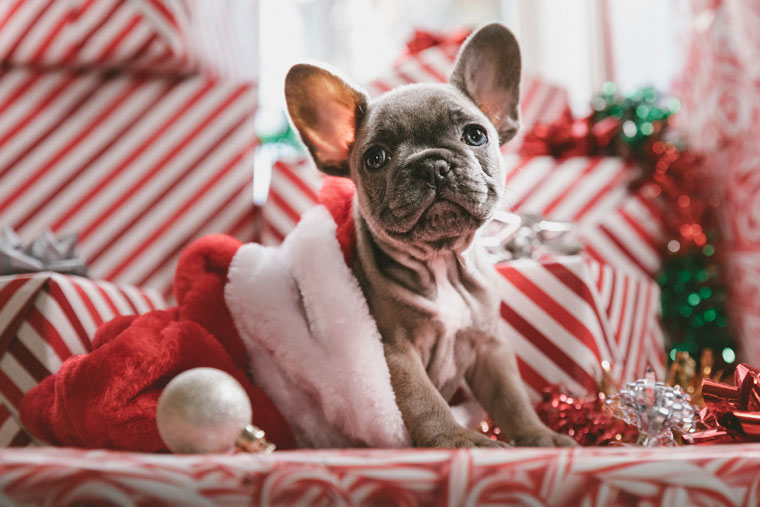
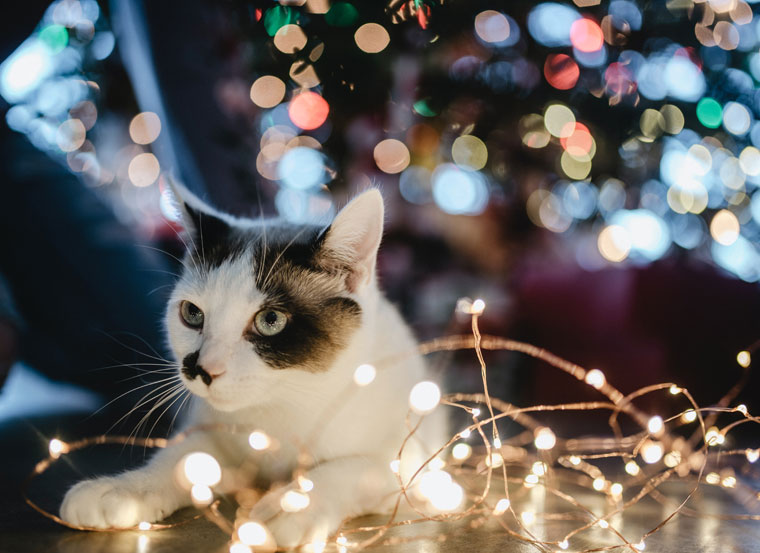


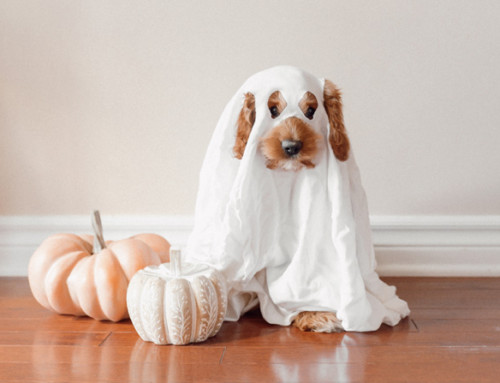
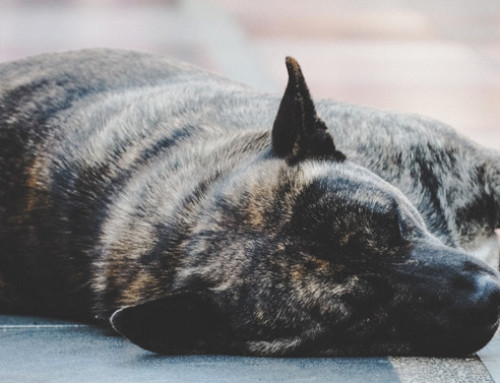
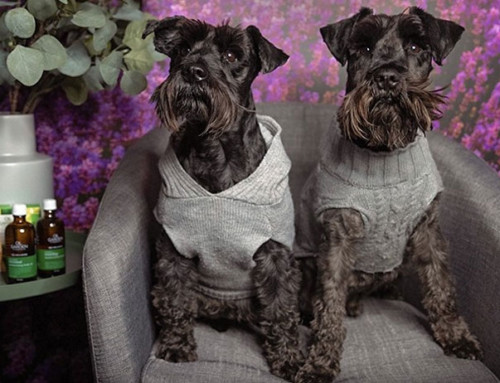
Leave A Comment